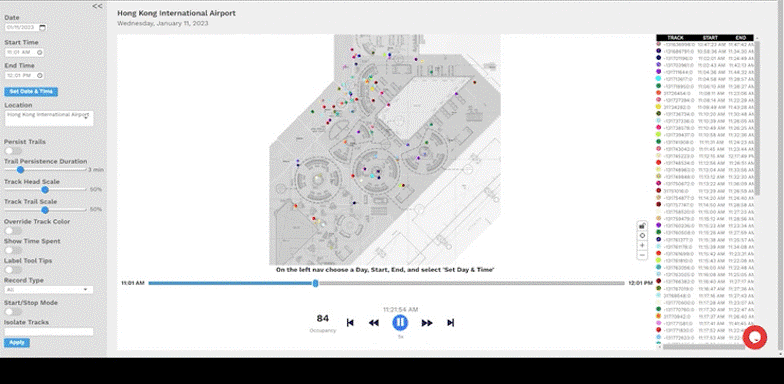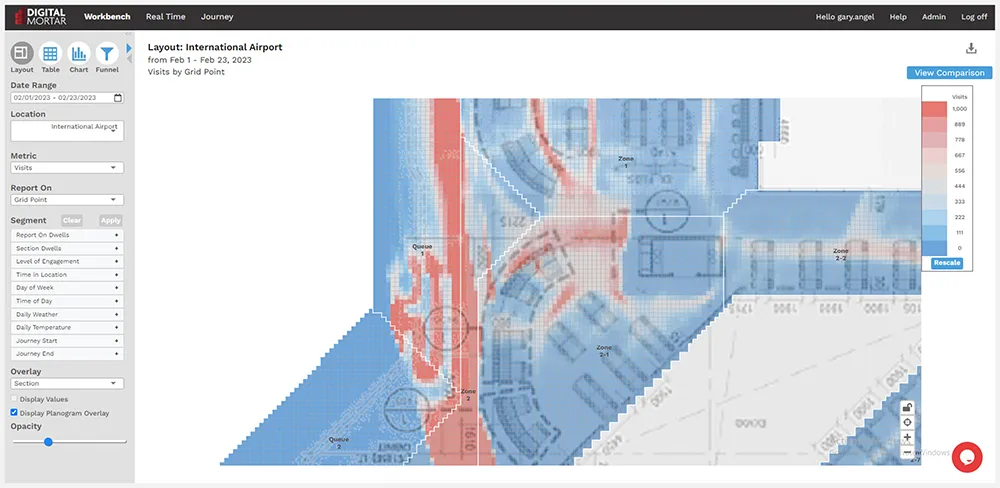Lidar’s People-Measurement Capabilities
Lidar’s People-Measurement Capabilities
By Gary Angel
|June 22, 2023

Lidar is an extraordinary tool for people-measurement. It can work in almost any environment regardless of lighting conditions or ceiling heights. A single lidar can cover a very large area and multiple lidar’s can be linked together to cover almost any physical space. It can generate very detailed point-clouds that allow for highly reliable, continuous tracking of people in a location (better than 98%). It can provide precise positioning of those people in the space (often down to the centimeter level and almost always to a single square foot). And it can track a person’s movement by scanning an area from 10 to 30 times a second – meaning that it will literally measure every step someone takes.
Those are pretty awesome capabilities – exceeding in almost every respect what can be done with any other technology.
This lets you track full journeys through an entire space.

And aggregate and analyze those journeys to understand usage, occupancy, path, and success across tens of thousands of visits.

Lidar and lidar software are also a natural fit for real-time applications. After all, the core use-case for lidar is in self-driving cars – a world where you have to make nearly instantaneous high-stakes decisions. For people-measurement, that means that lidar can support very near real-time applications including perimeter monitoring, queue management, dynamic associate allocation, and digital twinning.

It’s also worth calling out that while “people measurement” is the focus, the capabilities of lidar detection are not limited to people. Lidar can track ANY kind of moving object in its field of view: including carts and automobiles. That means lidar sensors can provide measurement for unusual use-cases like drive throughs, gas stations, curbside pickups, and complex intersections.
In the animated image below, the triangles are cars in a gas station and the circles are people on the lot and in the store. Lidar let’s you track both simultaneously!

In the next post, I’ll look at some different types of lidar sensors how to choose between them.